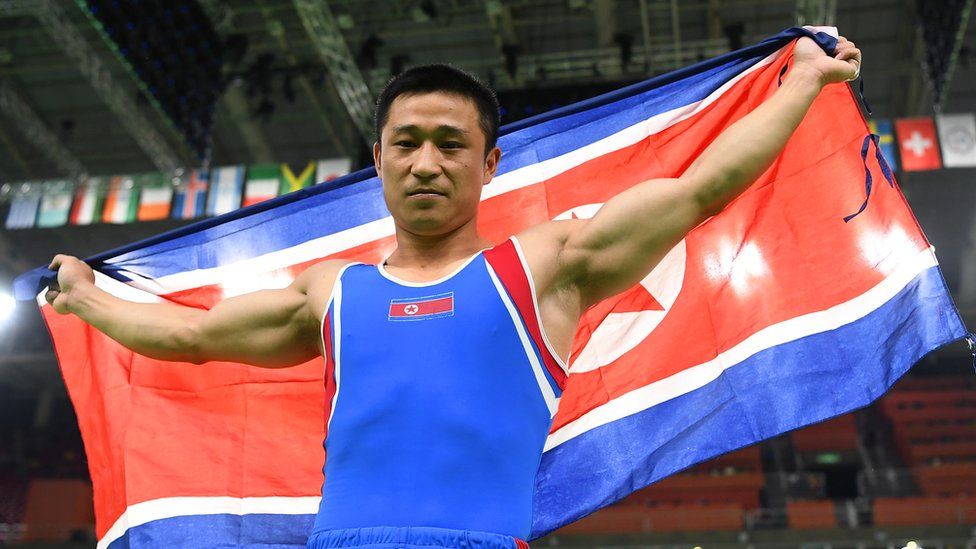Winter Olympics: How good is North Korea at sport?
- Published

For all the buzz and political intrigue, North Korea's participation at next month's Winter Olympics in Pyeongchang will live up to the old saying: "It's the taking part that counts".
Their representation at the Games is still to be confirmed, but may be limited to two figure skaters.
Perhaps surprisingly, there are sports North Korea is pretty good at and in some cases even dominates.
Take the summer Olympics. They have won far more medals than bigger countries like India and Nigeria - 54 in total.
Most of their Olympic glory has come in weightlifting and their athletes hold three world and two Olympic records.
At the last summer Games in Rio de Janeiro in 2016, they won seven medals, including two golds, putting them about halfway up the table.
North Korea's women's football team is ranked 11th in the world by FIFA. And although they were surprisingly knocked out of qualifying for the 2019 World Cup, they won the East Asia Football Federation Championship in December last year. That success followed winning the under-20s World Cup in 2016.
The team's reputation had taken a hit in 2011 after five players tested positive for banned substances.
While the men's football team has only taken part in two World Cups, and is ranked a lowly 126th, they are fondly remembered for a good performance at the 1966 Finals in England, reaching the quarter finals.
They put in another good display against Brazil at the 2010 tournament, narrowly losing 2-1, but they also slumped to a 7-0 defeat by Portugal.
In their most recent fixture, North Korea drew 1-1 with China under the stewardship of their Norwegian manager Jorn Andersen.
North Korea is expected to send a taekwondo demonstration team to the Winter Olympics and that is not a surprise because it's a sport where they dominate. Well, at least one branch of it.
Unfortunately it's not the branch chosen by the Olympics, or by South Korea, but a version under rules governed by the International Taekwon-Do Federation (ITF).
At a recent major international competition held in Pyongyang, North Korea won 22 gold medals and the next best performing country was Russia, with seven.
North Korea have invested heavily in the sport and built two "majestic" taekwondo facilities, says long-time ITF member and taekwondo historian George Vitale.
For taekwondo and other sports, the North Korean government has a system for identifying sporting talent at an early age.
Time and money is spent on turning these youngsters into proper athletes and selected children attend special sports schools.
Udo Merkel, an expert on sport in North Korea who has visited the facilities there, says despite the general levels of poverty, top-level athletes train in impressive, modern facilities.
Most ordinary North Koreans take part in some sporting or physical activity, which is common in communist countries. Competitions are organised through the military, state organisations or labour unions.
In the 1980s, the central government launched public campaigns to train people in defence and combat sports like boxing, taekwondo and rifle marksmanship.
The regime thrives, says Michael Madden, founder of the website NK Leadership Watch, when it keeps the population busy with organised activity.
- Published14 January 2018
- Published15 August 2016
- Published12 August 2016
- Published19 July 2023